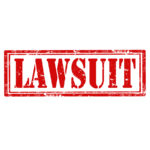LAWSUIT: Intolerable Boston College Successfully Limits Scope of $3M Lawsuit
The scope of the jury trial taking place next month in the $3 million lawsuit being brought against Boston College will be limited solely to whether or not administrative interference took place, specifically a breach of contract or violated a basic fairness principle. It will not consider whether an alumnus described as “John Doe” in court documents was wrongfully convicted of indecent assault. That scope is more along the lines of what University attorneys argued to Massachusetts District Court Judge Denise Casper. Doe’s representation posited that potentially-exculpatory evidence in Doe’s case should be brought before the jury. Casper said that only the information that the BC disciplinary hearing board, which originally heard Doe’s case, should be considered by the jury. Additional information, like forensically analyzed video and DNA evidence that was not available to the BC hearing board, will not be admissible in the trial.
The primary issue of the March 14 hearing was whether Doe’s request to admit exculpatory evidence was within the parameters of proving that Doe was not afforded a fair disciplinary hearing by BC. The University argued that such evidence would mean that Doe is getting an “on merit” trial on the basis of whether or not he sexually assaulted a fellow BC student on the 2012 AHANA Leadership Council Cruise while reporting on the event for The Heights—which is not among the issues remanded back to district court by the First Circuit Court of Appeals. Doe argued that the nature of the hearing process and the final decision of the hearing board are inextricable. Casper disagreed, saying that since the appeals court affirmed Casper’s original summary judgement decision in BC’s favor on counts of breach of contract in the 2014 independent review of the hearing, gender bias, Title IX claims, and negligence, only the hearing process can still be considered.
bcheights By Jack Goldman

